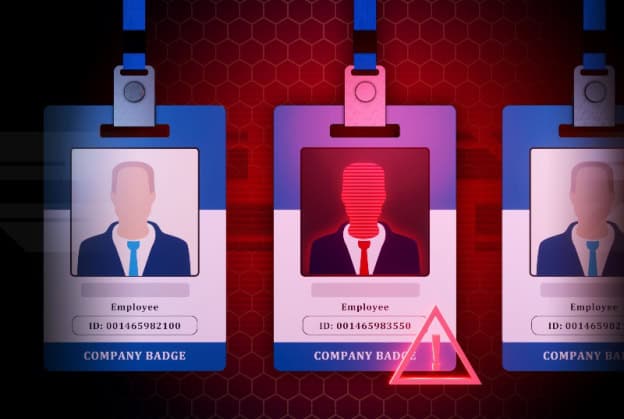John, a project manager at a mid-sized tech company, starts his workday by logging into the company’s network from his laptop. He receives an email from what appears to be a familiar vendor, requesting an urgent update to their account details. Without verifying the sender’s identity or the email’s legitimacy, John clicks on the provided link and inputs his login credentials. Unbeknownst to him, the email was a sophisticated phishing attempt, and his credentials are now compromised … Later in the day, John accesses several sensitive project files and shares some of them via email with external partners, using his compromised credentials. This action unintentionally grants the attackers access to critical company information.
As John continues his day, he notices an issue with a software application and contacts IT support. During the conversation, he inadvertently mentions his login issues from earlier, which alerts the IT team to a potential breach. However, before the IT team can fully investigate, the attackers use John’s credentials to escalate their privileges and access the company’s financial systems. The breach is eventually detected, but not before significant damage is done.
Protecting against insider threats is paramount for maintaining organizational data security. Insider threats, whether malicious or accidental, can significantly impact an organization’s financial health and reputation. These threats are particularly dangerous because they involve individuals who already have access to sensitive systems and data, making them harder to detect and prevent.
Understanding Insider Threats
Insider threats stem from individuals within the organization, including employees, contractors, and business partners, who have access to sensitive systems and data. These threats can be categorized into three types:
- Malicious Insiders: Individuals who intentionally cause harm by exploiting their access.
- Negligent Insiders: Employees who accidentally compromise security through careless actions.
- Compromised Insiders: Employees whose credentials are stolen by external attackers.
Strategies to Mitigate Insider Threats
Given the potential damage that insider threats can cause, it is crucial for organizations to implement comprehensive strategies to mitigate these risks. By doing so, organizations not only protect their data but also ensure the integrity and trust of their business operations. Effective strategies help in identifying potential threats early, responding to incidents promptly, and minimizing the overall impact on the organization.
- Implement Robust Access Controls:
- Least Privilege Principle: Ensure employees only have the access necessary to perform their jobs. This minimizes the risk of data exposure.
- Regular Access Reviews: Periodically review and update access rights to ensure they are appropriate for current roles and responsibilities.
- Monitor and Detect Anomalous Behavior:
- Continuous Monitoring: Utilize tools like AgileBlue’s Cerulean AI platform, which offers 24/7 monitoring to detect unusual activities in real-time.
- Behavioral Analytics: Use behavioral analytics to establish baseline behaviors and detect deviations indicative of insider threats (Securing Your SMB).
- Enhance Employee Training and Awareness:
- Security Training Programs: Conduct regular training to educate employees on security policies and how to recognize phishing attempts.
- Simulated Phishing Attacks: Test employees’ awareness through simulated phishing attacks and provide feedback for improvement.
- Implement Data Loss Prevention (DLP) Tools:
- DLP Solutions: Deploy DLP tools to monitor and control the movement of sensitive data within the organization, preventing unauthorized transfers and alerting administrators to potential breaches (Cyber Risk Scoring).
- Establish a Strong Incident Response Plan:
- Incident Response Team: Create a dedicated team to handle insider threat incidents swiftly and effectively.
- Regular Drills: Conduct regular drills to ensure the team is prepared to respond to real threats.
- Leverage Advanced Threat Detection Technologies:
- Artificial Intelligence (AI) and Machine Learning (ML): Utilize AI and ML technologies like AgileBlue’s Sapphire AI to enhance threat detection capabilities. These technologies analyze large volumes of data to identify patterns indicative of insider threats (Navigating Compliance) (Securing Your SMB).
- Cyber Risk Scoring: Employ cyber risk scoring to evaluate the security posture of individuals and systems, helping prioritize mitigation efforts.
Insider threats pose a significant risk to organizational data security. Implementing robust access controls, continuous monitoring, comprehensive employee training, DLP tools, a strong incident response plan, and leveraging advanced technologies are essential strategies to mitigate these threats. AgileBlue’s comprehensive cybersecurity solutions, including the Cerulean AI platform and Sapphire AI, provide the necessary tools and expertise to safeguard against insider threats, ensuring the protection of critical data and maintaining organizational integrity.




